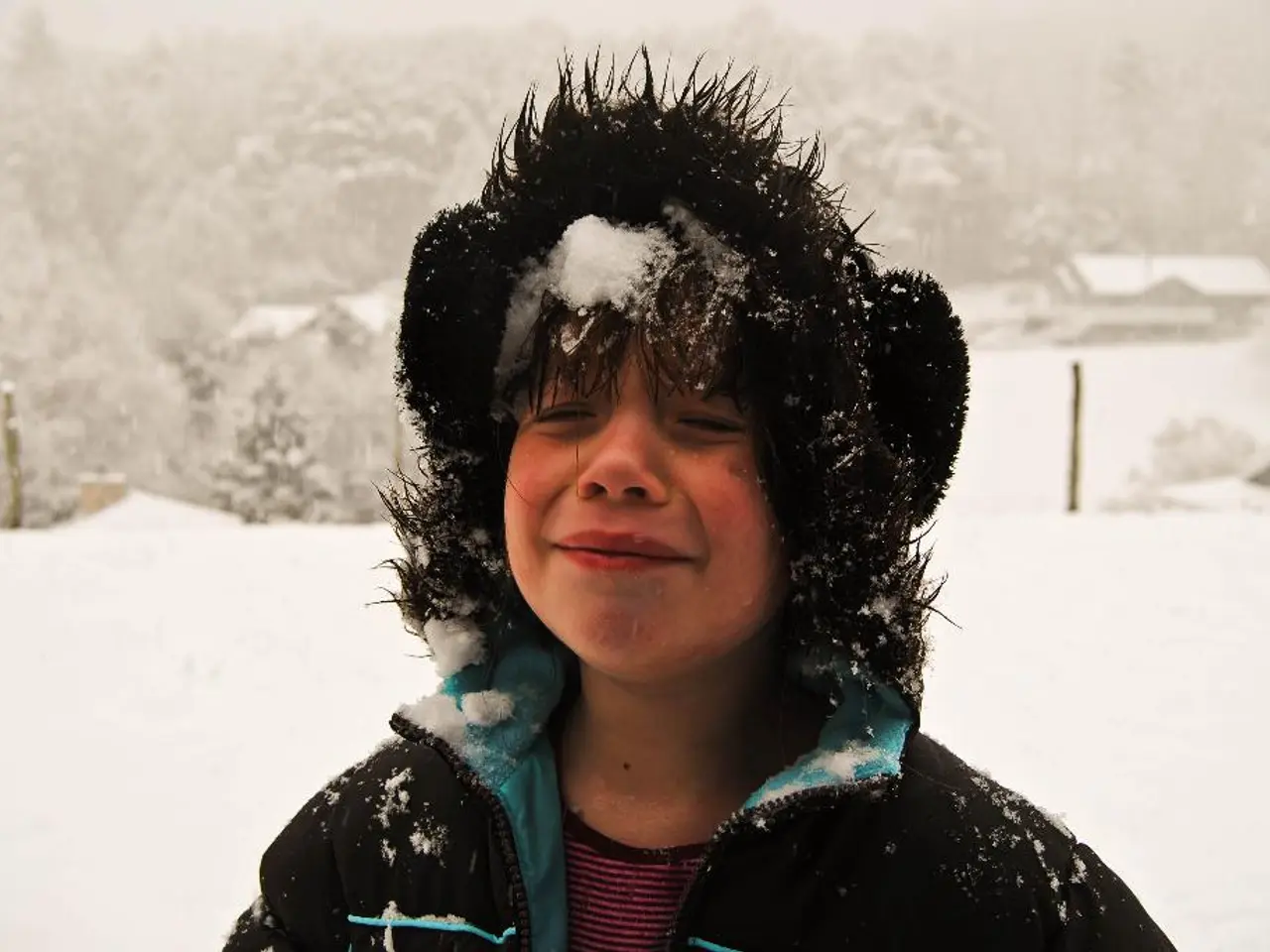Regular Expressions of Dissatisfaction in Children, as Suggested by Professionals
In the complex world of childhood, understanding the signs and phrases that indicate depression is crucial for parents, educators, and caregivers. Depression in children, while often masked by playfulness or energy, can be a serious condition that requires immediate attention.
Common Signs of Child Depression
Depression in children can manifest in various ways, but some common signs include persistent sadness or irritability lasting more than two weeks, loss of interest or pleasure in usual activities, fatigue, changes in appetite or weight, difficulty concentrating, social withdrawal, and sometimes suicidal ideation [1][2][4][5]. Children may also display frequent crying, low energy, mood swings, and behavioral changes such as anger outbursts or avoiding school or social events [5]. Irritability can be a prominent symptom in children, sometimes more than overt sadness [2]. These symptoms impair the child’s daily functioning across home, school, and social environments [1][4].
Phrases Used by Deeply Unhappy Children
Children who are deeply unhappy often use phrases that are characterized by explicit or implicit expressions of sadness and hopelessness. They might say things like "I don’t want to do anything anymore," "I feel tired all the time," "Nothing is fun," "I feel bad about myself," “I’m just sad,” or even statements implying loss of hope or thoughts about death or suicide [4]. Children experiencing intrusive worrying or obsessive fears that contribute to secondary depression might express fearfulness or concerns about harm coming to themselves or loved ones [1].
Experts emphasize that children’s language may be indirect — they might express irritability, frustration, or physical complaints rather than explicitly stating sadness [1][5]. Therefore, observing behavior alongside listening to phrases can be important for diagnosis.
Causes and Treatment of Child Depression
Child depression can be a result of separation from a parent or caregiver, illness or injury, childhood abuse or neglect, or strange situations like a car accident or witnessing domestic violence. Depression is a biological condition that needs to be treated with a combination of medication and cognitive behavioral therapy [6].
Importance of Recognition and Help
Noticing the signs of depression in children is important so they can get the help they need. Research from Frontiers in Pediatrics indicates that viewing extreme violence, whether directly or indirectly through media, can negatively impact children's mental and emotional health [7].
Experts like Will Curtis, with over 14 years of experience in editing relationships, spirituality, and human interest topics, stress the importance of understanding the language and behaviour of children to identify and help those who are struggling [8]. Family counselor Larry Michel notes that certain phrases are particularly common when the child is in Figurative Talking Style and the parent is in Structural Talking Style [3].
Coach Allan, who teaches children from ages 4 to 84 how to take accountability for themselves, highlights that phrases like "They made me" may indicate that a child feels like a victim due to a lack of understanding about accessing the key to life [2]. On the other hand, saying "Of course, that's not true!" to a child who says "You love her/him more than you love me" is invalidating and deepens their sadness [9].
Aria Gmitter notes that children who say "You love her/him more than you love me" are seeking help, healing, wholeness, and compassion [9]. Quitting the things you love teaches control, while including children in them teaches trust [10].
In conclusion, understanding the signs and phrases that indicate depression in children is essential for early intervention and support. By recognizing these signs, we can help children navigate their emotions, build resilience, and foster a healthier, happier future.
References:
- Frontiers in Psychiatry
- Susan Allan
- Larry Michel
- Aria Gmitter
- Mayo Clinic
- American Academy of Child and Adolescent Psychiatry
- Frontiers in Pediatrics
- Will Curtis
- Psychology Today
- HelpGuide
- Recognizing phrases like "I don't want to do anything anymore" and "I'm just sad" can be indicative of a child's deep-rooted unhappiness, a potential sign of depression.
- Understanding the language and behavior of children is crucial for early intervention and support, especially if they are using phrases that imply a lack of energy, loss of pleasure, or self-deprecation.
- Children who express feelings of being a victim, such as saying "They made me," may benefit from learning self-accountability to foster resilience and mental health.
- Depression in children can stem from various experiences, such as separation from a parent, illness, or trauma, making it important for parents, educators, and caregivers to be vigilant about the signs.
- In the realm of family counseling, certain phrases are especially signals of a child's figurative talking style, which can help caregivers better understand their emotional state.
- By fostering a healthy and supportive environment, we can guide children through their journeys of self-discovery, love, and personal growth, ultimately promoting their mental and emotional health and wellness.




